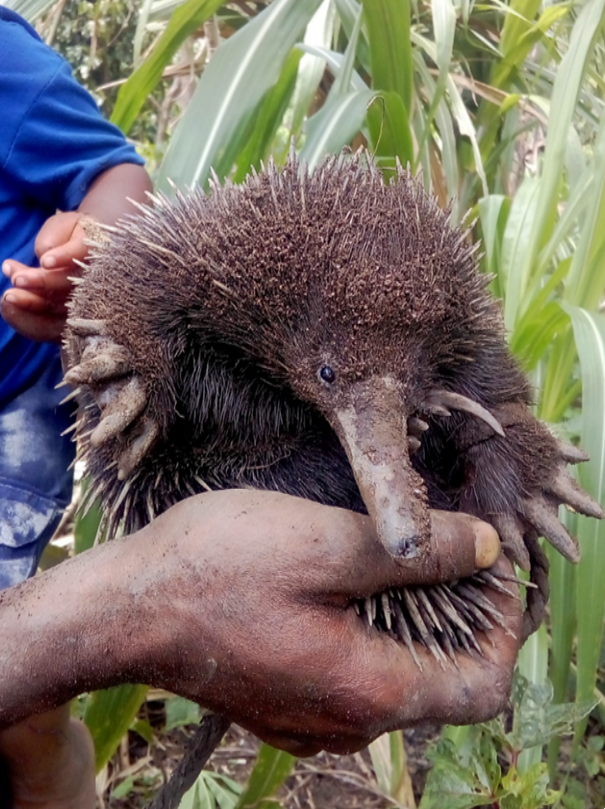While the avifauna of Hogave attracts a lot of attention for visitors and researchers to Hogave Conservation Area, the forest also has interesting small mammals that live under the foliage. The curious short-beaked echidna is one of them. Also known as spiny anteater, the short-beaked echidna is a monotreme which is one of the 5 species of mammals that lay eggs (the others being the three types of long beaked echidna and the platypus). This egg-laying mammal resides at the lower altitude area of Hogave among the lowland shrubs in a warmer climate. This monotreme ranges from 35cm to 52cm in length and is covered with short spiky spines which it uses to protect itself by curling up into a spiky ball when attacked. It can weigh up to 6 kilograms. The short-beaked echidna is quiet and solitary, preferring not to hang around other echidnas. It has a powerful snout which it uses to detect food like ants and termites and then it uses both its snout and sturdy paws to swiftly burrow into the earth to get to its meal. It also finds its food from rotten logs or termite mounds. The short beaked echidna has no teeth so they use their tongues and roof of the mouth to grind the food before swallowing.
Many people in Papua New Guinea are not aware of the existence of echidnas in our local environment due to overhunting of the species and destruction of its habitat.
HCC
The echidna burrows into the earth during adverse weather like storms. After mating, the female echidna will produce one egg into its pouch which hatches after 10 days into a small young and it is carried around in the pouch for about 3 months before it is left in a burrow. It is weaned after 12 months. The short-nosed echidna can live up to 40 years if it is not attacked or destroyed. Its population has unfortunately declined due to hunting by locals or domestic pets but it is protected within the Hogave Conservation Area where locals are prohibited from killing it or destroying its habitat. While the scientific name is Tachyglossus aculeatus, in the local tongue, it is called “Kuiaru”. Many people in Papua New Guinea are not aware of the existence of echidnas in our local environment due to overhunting of the species and destruction of its habitat. Unsupervised domestic dogs have also contributed to diminishing its numbers. Hogave Conservation conserves the short-beaked echidna by protecting it and its habitat to ensure the present and future generations can enjoy this this quirky shy creature.

